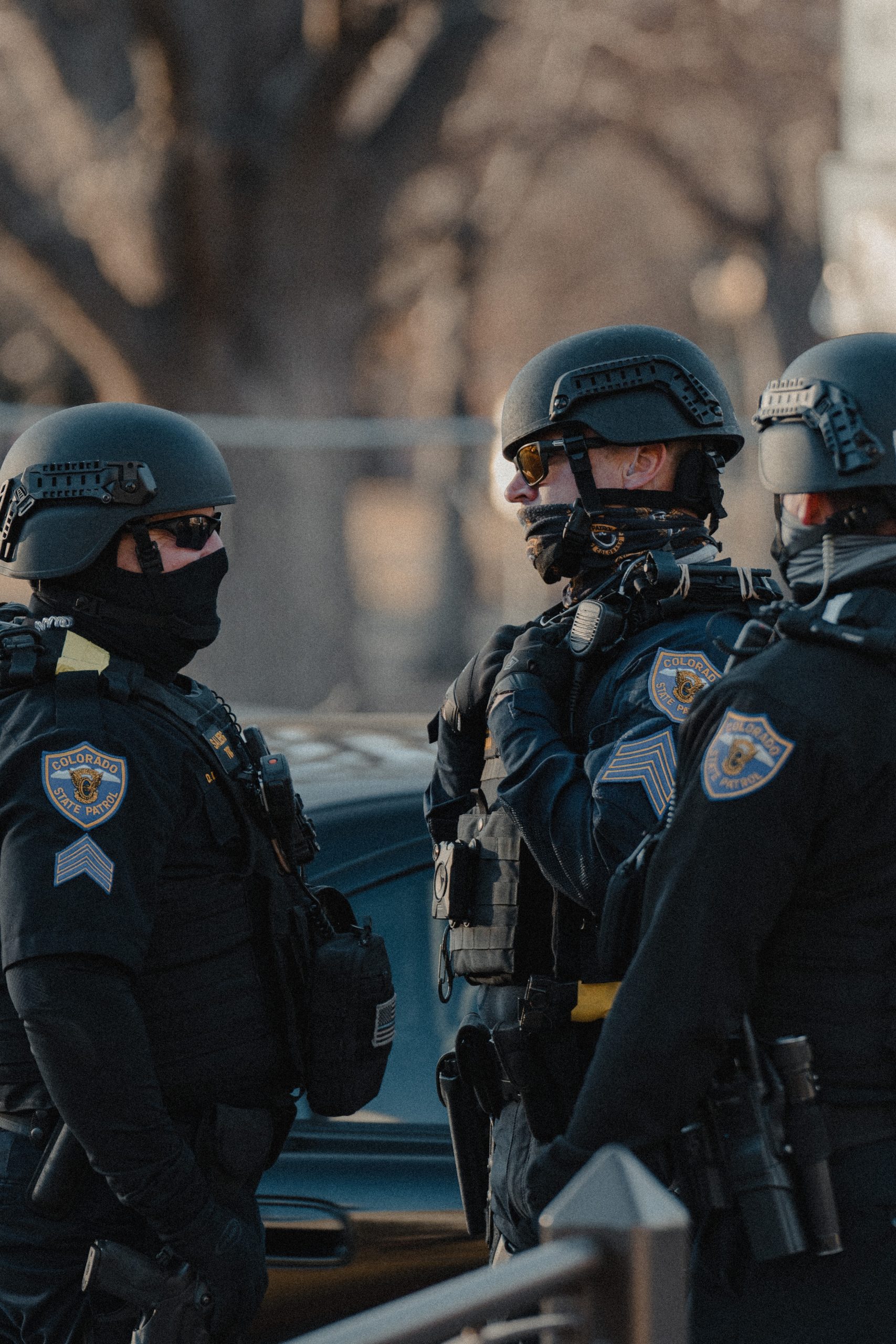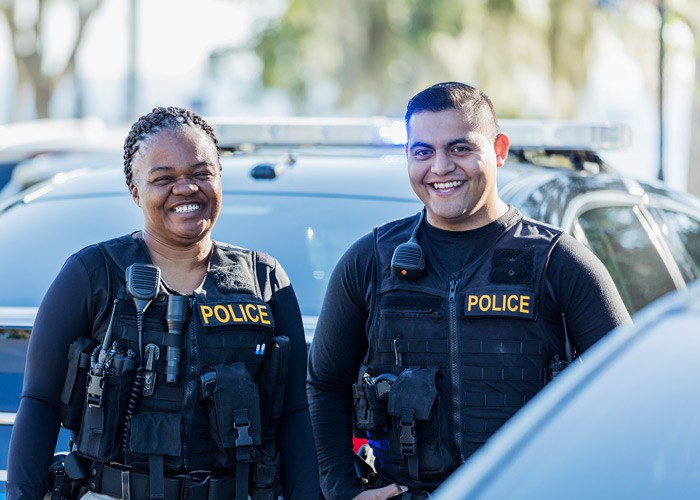Introduction
Exceptional leadership determines whether police departments thrive or falter. Yet many agencies do little to systematically develop managers and executives. Those promoted for technical skills or tenured service often lack the ability to spearhead culture change, community relationships, accountability, and data-driven evolution. Leadership development is no longer optional – it is essential for modern policing. This guide reveals structured frameworks to transform your personnel into strategic leaders ready to take your agency to the next level. The future starts now.
Start with Self-Leadership
Before guiding others, officers must master self-leadership. Curriculums should address:
- Emotional intelligence – understanding emotions and managing responses to stressors. Vital for de-escalation.
- Ethics training – guiding principles for high-stakes decision making. Establishes moral compass.
- Time and priority management – focusing on high-impact activities and avoiding distraction.
- Wellness and resilience – managing secondary trauma and practicing self-care to avoid burnout.
- Continuous learning – modeling growth mindset and intellectual curiosity.
Self-mastery and inner discipline separate exceptional leaders from unprepared supervisors. Structure programs to develop these foundations first.
Teach Essential Management Skills
Once self-leadership is ingrained, teach core competencies like:
- Effective communication – public speaking, messaging, active listening, and transparency. Essential for engagement.
- Performance management – goal setting, instructive feedback, coaching, evaluations, and discipline.
- Change management – driving strategic transformations by communicating vision, supporting transition, and overcoming resistance.
- Project management – planning and executing complex initiatives on budget and schedule.
- Budget and resource planning – fiscally responsible stewardship of department needs.
- Team development – boosting morale, collaboration, skill building, and conflict resolution.
Mastery of these fundamental skills creates quality frontline supervision. Reinforce through scenario practice.
Cultivate Strategic Thinking
While basic management enables short-term operational gains, strategic thinking drives paradigm shifts through:
- Conceptual agility – recognizing emerging challenges and creatively applying broad knowledge to complex problems.
- Data-driven analysis – objectively diagnosing issues and opportunities through statistical insights rather than assumptions.
- Vision casting – rallying and inspiring teams around a compelling mission that progresses policing.
- Community perspective-taking – understanding diverse needs and backgrounds to improve public relations.
- Futuristic foresight – anticipating challenges on the horizon and pioneering solutions before issues arrive.
Test strategic aptitude through analysis of real agency challenges in competitive simulations. Stretch personnel outside their comfort zones.
Prioritize Emotional Intelligence
IQ alone is not enough – exemplary leaders leverage emotional intelligence to motivate teams, retain talent, and build trust through:
- Self-awareness and introspection – understanding one’s own biases, triggers, and weaknesses.
- Empathy – ability to see through the lens of different stakeholders and cultures. Builds compassion.
- Social skills – fostering positive rapport through open communication, approachability, and responsibility.
- Resilience – modeling healthy responses to frustration and stress.
- Motivation – inspiring peak performance in colleagues through hope, purpose, and encouragement.
High EQ distinguishes resonant leaders from technically brilliant but interpersonally inept managers.
Immerse Leaders in Agency Operations and Data
Informed strategy requires deep insight into departmental operations and community contexts. Tactics like:
- Cross-departmental job rotations – e.g. command undertaking patrols, detectives shadowing records staff. Builds breadth.
- Reviewing disciplinary records, lawsuits, complaints, and exit interviews to identify systemic personnel issues.
- Examining arrest, response time, sick leave, turnover, and community polling data for diagnostic patterns.
- Meeting with external community leaders and reform advocates to understand outside perspectives.
- Anonymous surveys to capture unfiltered feedback on management performance.
When executives disconnect from realities in the field and community, leadership suffers. Mandate immersion.
Tailor Training to Upcoming Positions
Customize leadership curriculums based on the next role and responsibilities:
- Progressing officers master supervisory skills like delegating, mentoring, coaching, and resolving conflicts.
- Newly promoted sergeants focus on team leadership through change, motivation, and culture building.
- Lieutenant training on managing across multiple diverse units, accountability, and cross-department coordination.
- Captains and above learn big picture strategy, public affairs, politics, reform, vision casting, and organizational change management.
Targeted education ensures leaders have skills tailored to their specific scope of responsibility.
Provide Ongoing Mentorship and Coaching
Classroom education cannot replace hands-on guidance. All leaders should be paired with mentors who:
- Provide advice on scenario-based leadership challenges.
- Review and provide feedback on plans and decisions.
- Share knowledge and model positive behaviors through ridealongs.
- Check-in frequently on progress, struggles, and goals.
- Point leaders to growth opportunities like conferences, education programs, and special assignments.
Consistent mentor guidance accelerates application of new leadership skills on the job.
Emphasize Continuous Leadership Development
Leadership training cannot be limited to a single program. Agencies must commit to continuous development through:
- Refresher courses and annual retreats to realign with organizational goals and refresh critical skills.
- Custom assessments like 360 reviews to pinpoint developmental gaps.
- Book clubs, speaker series, and journal article discussion groups to foster ongoing learning.
- External leadership conferences, seminars, and events to gain exposure to new methodologies.
- Designating executive training budgets solely for continuing education.
Leaders must exemplify the growth mindset the department seeks to cultivate. Make development a habit.
Conclusion
Exceptional leadership is non-negotiable in modern policing. But most agencies invest little in structured leadership curriculums. Serious, empirically designed programs focused on strategic thinking, people skills, operational immersion, goal-aligned education, mentorship, and lifelong learning produce the caliber of leaders communities deserve. While developing great leaders is challenging, the rewards of professionalism, accountability, and community trustworthiness make the commitment worthwhile. The futures of agencies and communities hinge on the quality of command. It is time to unveil the proven frameworks that transform cops into exemplary leaders. What will you implement this year? The journey begins now.
Frequently Asked Questions
When should leadership training begin in a law enforcement career?
Agencies should provide basic self-leadership, ethics, project management, and communication skills education to officers prospective for first-line supervision. More advanced leadership training then intensifies as promotions occur.
What percentage of law enforcement leaders lack formal leadership education?
Studies suggest around 80% of police in supervisory roles have never received structured leadership training, promoting based on tenure and technical skills alone. This lack of education perpetuates outdated management styles.
What skills are most important for senior police executives?
Strategic thinking, organizational change management, culture building, community perspective-taking, data and technology fluency, politics and media relations, vision casting, and reform orientation distinguish effective senior leadership.
How can agencies make leadership training stick?
Follow-up mentor coaching, continuous refresher courses, accountability for applying skills, post-training surveys, assignment to leadership roles that necessitate new abilities, and ongoing peer learning cement leadership education.
What happens without professional leadership training?
Absent modern leadership training, departments experience preventable scandals, community distrust, poor morale, lack of accountability, resistance to reforms, and stratified thinking that inhibits innovation and evolution.






